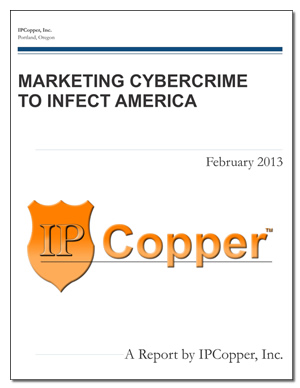Network Forensics & Packet Capture Analysis
Network forensics & Anti-forensics: Establishing facts and digital timelines
Learn about collecting forensic network evidence and why it is important for investigating and prosecuting network breaches and data theft.
Network forensics is the monitoring and analysis of network data activity, commonly used for information gathering, legal evidence and intrusion detection. Network forensics analysis is an invaluable tool for addressing any number of data network issues, ranging from detecting and responding to breaches and conducting e-discovery to troubleshooting network configurations.
Network activity is volatile and dynamic — it is lost once transmitted. Network forensics therefore requires a pro-active approach to capturing network data, for example, installing a packet capture appliance (aka network recorder) BEFORE a record of network activity is needed, not after.
Network forensics requires two steps: first gathering the "facts" (i.e. complete network activity data, aka packet capture data) and then interpreting the data. Network activity data builds the foundation necessary for a network forensics investigation and provide the network intelligence on which any network analysis relies. Interpreting forensic network data could range from extracting files and reconstructing web sessions to tracing data leakage and detecting advanced persistent threats.
Continuous packet capture appliances are the only truly effective network forensics tools for gathering and retaining the data required for investigations; software packet capture solutions cannot handle the high-volume or long-term capture needed to meaningfully analyze network activity and capture intermittent network problems or one-time security events. Reliable, secure, long-term network capture is also key when hackers utilize any sort of anti-forensics techniques to hide their tracks. Long-term full packet capture facilitates successful network forensics investigations based on complete historical and current network activity, capturing network events and activity as they occur in real-time.
Waiting to install a forensic network capture appliance until after a security incident has already occurred is like locking up the barn after the horse has already been stolen. By proactively capturing network activity — BEFORE a breach or other network incident — the data is always available when needed for event reconstruction, incident response and mitigation, data mining, data leakage detection, network performance evaluation and troubleshooting, user activity reconstruction and data breach investigation.
IPCopper Network Forensics and Data Security Analysis Services
By utilizing our own advanced network forensics tools, we can provide any organization with tailored network forensic services. One of the first steps toward securing your data and protecting your organization is knowing exactly happens on your network and what information traverses your internet connection. It is just as important to know what is coming into your network as what is going out.
We recommend deploying a packet capture appliance to capture and record your network activity on a continuous basis, keeping your covered in case an incident occurs. Our IPCopper packet capture appliances perform this task admirably, providing continuous, passive network capture without adding to or affecting traffic on your network, changing network topology or requiring any network re-configuration to deploy. Using the data recorded by one of our packet capture appliances, we can perform a forensic examination of your network’s IP and non-IP traffic without disruption to your network or computing activities.
Our network forensics team can:
- Provide forensic analysis of security breaches, which could be used for investigation, prosecution or mitigation
- Provide assistance to legal teams with e-discovery
- Identify and authenticate specific network user activities
- Create custom data mining solutions with document authentication
- Analyze secure networks
- Record and analyze raw network activity
- Implement a continuous network monitoring solution
- Formulate and fulfill incident response plans to a breach or other network event
- Conduct email / file acquisition and analysis
- Detect and diagnose malware and virus infestations
- Develop custom IT security practices and implementations
- Identify and reconstruct data access by various users
- Detect data leakage and determine its scope
Our network forensics team is also available to aid in data mining and e-discovery efforts and can provide expert testimony on computer data and network and digital forensics.
We would be happy to discuss your network forensics needs. Please contact us to explore your options.

